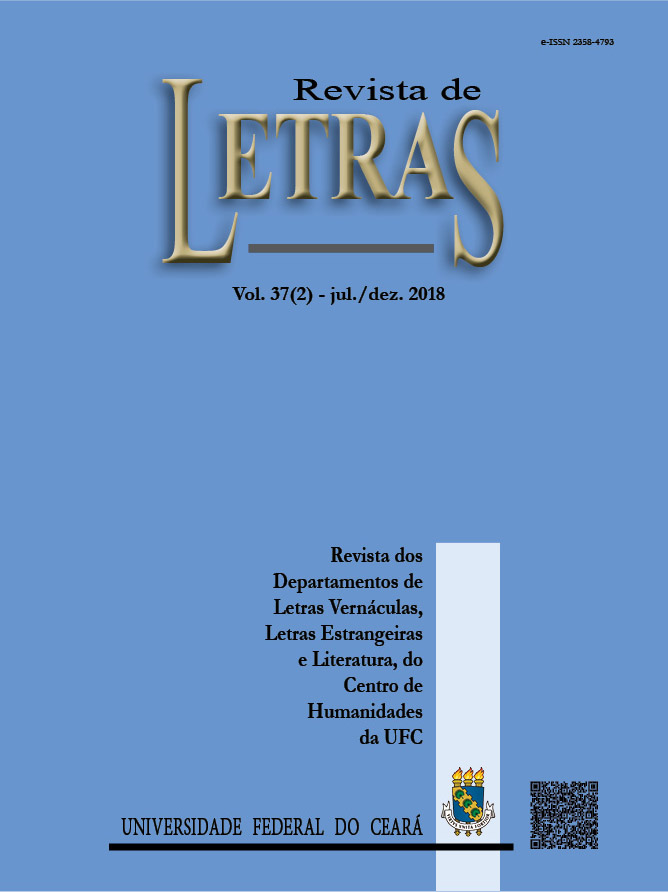TOPONYMS IN ECOLINGUISTICS: CONTRASTS AMONG DIFFERENT STRATEGIES OF NAMING PLACES IN IRAN AND BRAZIL
Abstract
Ecolinguistics and Toponymy are both marginal to General Linguistics. On one hand, the main contribution that Toponymy can provide is the knowledge of interactions between human and
nature inside a linguistic environment. On the other hand, Ecolinguistics can offer distinct methodologies, tools of analysis, and conspicuous frameworks to placenaming. This work discusses
theoretical and methodological issues regarding traditional Toponymy studies and the contributions that Ecolinguistics can present to this area. Furthermore, in order to clear up our assumptions on the relations between Ecolinguistics and Toponymy, we analyze data from two distinct places – two linguistic environments – one in Sergipe (Northeastern Brazil) and other in Gilan (Northern Iran), with different naming places mechanisms. The main mechanism is the influence of Territory physical traces on the place name, but there are several other, such as: the relations with the local inhabitants’ history or behavior, mental, nature or culture features as well. These naming places instruments reveal information about the Language, the People, and the Territory of those places.
Keywords: Toponymy. Ecolinguistics. Ecosystemic Linguistics. Brazil. Iran.
Downloads
Downloads
Published
How to Cite
Issue
Section
License
Autores que publicam nesta revista concordam com os seguintes termos:- Autores mantêm os direitos autorais e concedem à revista o direito de primeira publicação, com o trabalho simultaneamente licenciado sob a Licença Creative Commons Attribution que permite o compartilhamento do trabalho com reconhecimento da autoria e publicação inicial nesta revista.
- Autores têm autorização para assumir contratos adicionais separadamente, para distribuição não-exclusiva da versão do trabalho publicada nesta revista (ex.: publicar em repositório institucional ou como capítulo de livro), com reconhecimento de autoria e publicação inicial nesta revista.
- Autores têm permissão e são estimulados a publicar e distribuir seu trabalho online (ex.: em repositórios institucionais ou na sua página pessoal) a qualquer ponto antes ou durante o processo editorial, já que isso pode gerar alterações produtivas, bem como aumentar o impacto e a citação do trabalho publicado (Veja O Efeito do Acesso Livre).

.png)






.png)
